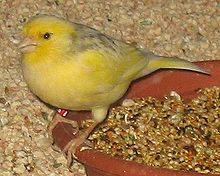Good morning,
Whitewater’s forecast calls for a mostly sunny day with a high of eighty-nine degrees.
There’s a meeting of Whitewater’s Community Development Authority today, beginning at 4:30 p.m. The agenda is available online.
Over at Wisconsin Builder, there’s an article entitled, “Top Projects of 2009.” Our campus’s Hyland Hall is one of those top projects. The listing is noteworthy for two reasons: first, it shows the accomplishment Hyland Hall represents; second, it shows that the crowing over the Innovation Center is just a lot of exaggeration. There’s no comparison between the completed Hyland Hall and the planned Innovation Center. Hyland Hall is a truly large project, and in every respect it dwarfs the much smaller, conventional office building that will be the Innovation Center. Note 5-24-10 afternoon: That’s Hyland. I’ll take the misspelling if the city will concede that the Innovation Center is slight by comparison. 🙂
I’ve always thought that organic food, without chemicals, was to be prized (even at the risk of spoiling). Perhaps that’s not true. Over at Ars Technica, there’s a post entitled, “Birds turn their beaks up at organic food.”
Here’s the finding of the recent study:
Is organic food everything its advocates claim to be? A new study published in the Journal of the Science of Food and Agriculture describes an experiment in which the subjects were free from human biases. The authors found that wild birds preferred ‘normal’ bird food to the organic option.
To study this burning issue, the researchers set up pairs of identical bird feeders in over 30 locations around northern England. The feeders contained two types of the same variety of wheat seeds, one organic and one conventional. The researchers then monitored the rate at which each seed was eaten over the course of a few weeks.
It was found that the birds preferentially ate the conventional seeds. To make sure that there wasn’t something about the relative placement of the feeders, the researchers switched each pair, and found that the birds learned the new location of the conventional seeds and continued to prefer eating from that feeder.
The experiment was repeated over a subsequent winter with a different type of seed, but produced the same results. More controlled laboratory trials with canaries found similar preferences for conventional over organic. In an attempt to explain this disparity, the researchers analyzed the seeds and found that the conventional seed contained upwards of 10 percent more protein per seed, most likely due to the use of inorganic nitrogen fertilizers used in conventional farming techniques.
So the birds went for more protein, available through added chemicals — Better living through chemistry.

